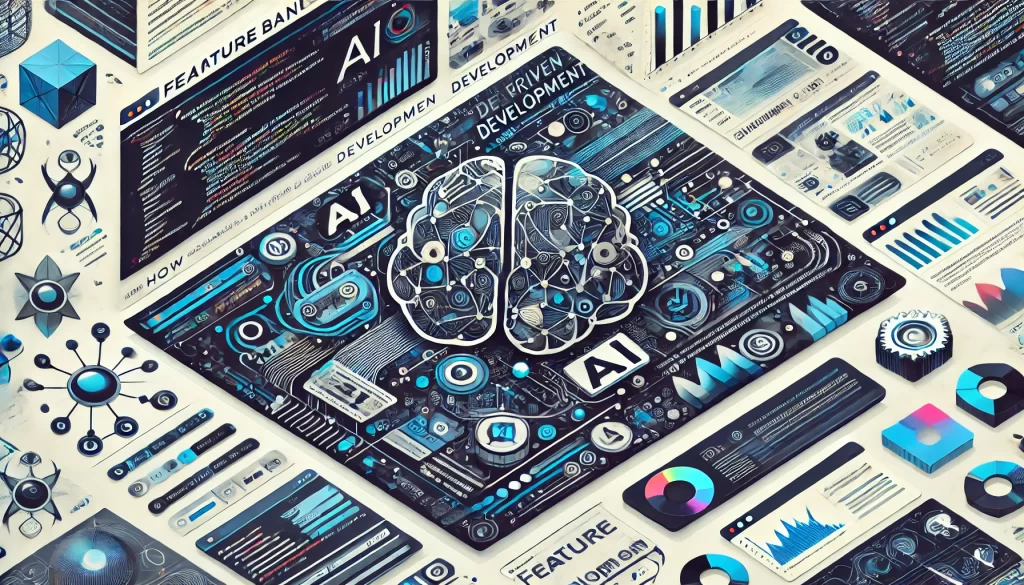
In the fast-changing technology landscape, Artificial Intelligence (AI) and Machine Learning (ML) are not just trendy terms anymore—they are effective tools revolutionizing different sectors, such as software development. AI-powered development is increasingly becoming a crucial influence in transforming the way software is created, built, tested, and managed. This blog explores the impact of machine learning on software engineering, opening up new possibilities and tackling enduring issues.
The Rise of AI in Software Development
AI and ML have transitioned from abstract ideas to useful resources that developers can incorporate into their daily tasks. AI-powered development, which involves incorporating AI into software engineering workflows, is a common term used to describe the integration of AI in this field. This method incorporates intelligent algorithms and data-driven models to automate tasks, improve decision-making, and ultimately create more dependable, effective, and scalable software.
The use of artificial intelligence in the creation and enhancement of code.
One of the most important effects of AI in software engineering is its capacity to create and improve code. GitHub Copilot, fueled by OpenAI’s Codex, supports developers by providing code suggestions, filling in code lines, and generating full functions from natural language cues. This feature not only accelerates the creation process but also minimizes mistakes made by people, guaranteeing superior code quality.
Machine learning models can examine large volumes of code from different repositories to understand patterns, best practices, and possible drawbacks. This information allows AI-powered tools to recommend improvements, restructure code, and pinpoint security risks before they pose threats.
Improving software testing using artificial intelligence.
AI is leading a transformation in software testing, an essential phase in the development process. Conventional testing techniques are frequently slow and may overlook minor bugs or unique situations. AI-based testing tools can create test cases, rank them according to risk, and forecast possible software failure points.
Machine learning models are capable of examining past testing data to pinpoint failure trends and recommend areas for future testing emphasis. Moreover, AI can also assist in generating self-repairing tests that adjust themselves as the software progresses, guaranteeing the ongoing relevance and efficiency of testing during the development process.
AI for Anticipatory Maintenance and Problem Solving
The practice of predictive maintenance, originally from manufacturing, is now being utilized in software engineering. AI models can track software performance live, identify irregularities, and forecast possible malfunctions before they happen. By taking a proactive approach, developers can tackle problems before they affect users, decreasing downtime and enhancing software reliability.
Artificial intelligence-driven tools can also help in troubleshooting and resolving software problems. By examining logs, error messages, and past data, these tools can indicate probable reasons for bugs and offer solutions, which can greatly cut down on troubleshooting time.
The Future of Software Engineering and Artificial Intelligence
AI is at an early stage in its integration with software engineering, but the possibilities are vast. With the progression of AI technologies, we can anticipate more advanced tools that will automate the entire development process more effectively, from collecting requirements to deployment and upkeep.
One of the most thrilling possibilities is the capability of AI to enhance more individualized software development encounters. Picture AI systems that are capable of comprehending a coder’s coding style, preferences, and previous projects, and then customizing their recommendations and improvements based on this information. This degree of customization might result in more effective development procedures and superior software quality.
Challenges and moral concerns
Despite the numerous benefits, the rise of AI-powered development also brings challenges and ethical considerations. There are concerns about job displacement as AI takes over more aspects of software engineering. However, it’s important to view AI as a tool that enhances human capabilities rather than replaces them. Developers will need to adapt, learning how to work alongside AI and leverage it to achieve better outcomes.
Another worry is the possibility of AI-driven tools continuing biases found in the data used for training. If not properly controlled, these biases may result in unjust or prejudiced software. Developers and organizations must make transparency, fairness, and accountability a top priority when incorporating AI into their processes.
Final thoughts
AI-powered advancement is set to transform the field of software engineering, providing increased efficiency, reliability, and creativity. AI allows developers to concentrate on more intricate and innovative parts of their work by automating tasks, improving decision-making, and offering predictive insights. As we progress, the software engineering field must adopt these technologies, tackle their difficulties, and utilize their maximum capabilities to create future software solutions.
The progress of AI and ML is undoubtedly linked to the future of software engineering. By staying informed and flexible, developers can make sure they stay ahead in shaping the future of technology with AI as a powerful tool.

1 thought on “AI-powered Development: How Machine Learning is Shaping Software Engineering”